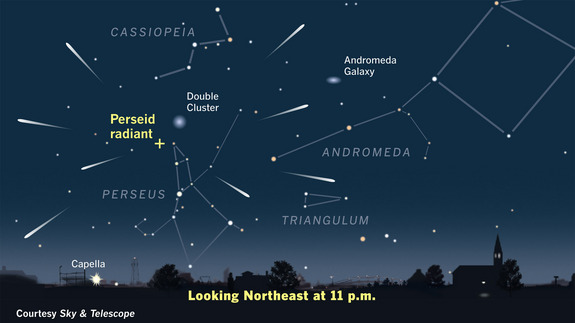The event logbook will be available from 9:30-10:30 pm. You may want to stay later to enjoy more shooting stars. Feel free to bring a blanket and snacks!
Please be quietly considerate of the neighbors when parking and hiking to the lookout.
A headlamp or flashlight is highly recommended for hiking to the event site. Please use red lens or film, or turn off your light as you approach the event site to prevent "light blindness" for yourself and other starwatchers.
Night hiking is not for everyone. Participate at your own risk.
The Perseid meteor shower will burst into light this August as Earth passes through the long trail left by Comet Swift-Tuttle — and this year, it's slated to put on a spectacular show. 2023 will be a good year for the Perseids as the moon will only be 10% illuminated. Here's how and when to see the Perseids.
Earth will pass through the path of Comet Swift-Tuttle from July 17 to Aug. 24, with the shower's peak — when Earth passes through the densest, dustiest area — occurring on Aug. 11-12. That means you'll see the most meteors in the shortest amount of time near that peak, but you can still catch some action from the famed meteor shower before or after that point.

This sky map shows the radiant of the Perseid meteor shower from the constellation Perseus in the northeastern sky during the meteor display's peak on Aug. 12 and 13, 2015. The Perseids appear to radiate out from a point on the border of constellations Perseus and Cassiopeia.
Source: http://www.space.com/32868-perseid-meteor-shower-guide.html
Image credit: Sky & Telescope Magazine Illustration
Previous Perseid Watching Events
GC4FZC4 Perseiden Meteorstrom Event 11/Aug/2013
GC6MHVN Perseid Meteor Shower Event II 09/Aug/2016